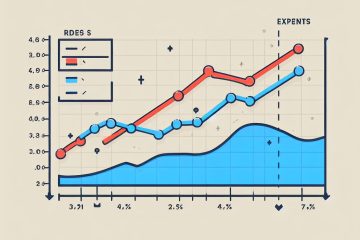Navigating the Tax Implications of Becoming a Landlord

Renting out a basement suite can be a lucrative source of supplemental income for homeowners. However, along with the benefits of being a landlord comes the responsibility of reporting rental income accurately to the Canada Revenue Agency (CRA). Failure to comply with tax regulations can lead to penalties and unwanted scrutiny. In this blog post, we will explore the essential steps to properly report basement suite rental income on your income taxes, ensuring compliance with the CRA and maximizing your financial returns.
1. Know Your Tax Obligations
You must report the rental income you receive from your basement suite to the CRA. Rental income is considered part of your taxable income and needs to be reported on your annual income tax return. Banks and lenders look at the income declared on your tax returns for future mortgages. Reporting your rental income will strengthen your ability to get a mortgage in the future.
2. Record-Keeping and Documentation
Keeping accurate records is crucial for reporting rental income correctly. Maintain organized records of rental payments, expenses related to the rental property, and any relevant receipts. This documentation will be vital when preparing your income tax return and may be required for potential audits. CRA can ask for documents up to seven years later, be sure to keep practice good documentation so you can remember your rationale.
3. Determine Allowable Deductions
As a landlord, you can claim allowable deductions to reduce your taxable rental income. Some common deductions include property taxes, mortgage interest, utilities, repairs, maintenance, and property management fees. Be sure to keep receipts and documentation to support these deductions. The CRA maintains a list on their site of allowable deductions, click here to check them out.
4. Filing Your Income Tax Return
When filing your income tax return, you will need to report the rental income from your basement suite on the appropriate section of your tax form. Depending on your circumstances and the complexity of your rental income, you may choose to prepare your taxes manually or seek the assistance of a professional tax advisor.
5. Rental Income vs. Principal Residence
The tax treatment of basement suite rental income will depend on whether your property is considered a principal residence. If you reside in the property and rent out a portion, such as a basement suite, it may still be classified as your principal residence for tax purposes. However, if your basement suite is a separate dwelling unit and you don’t occupy it as your primary residence, different tax rules may apply.
6. Reporting Rental Losses
In some cases, your rental expenses may exceed your rental income, resulting in a rental loss. Rental losses may be used to offset rental income on your income tax return, potentially reducing your overall tax liability. However, certain restrictions apply, and it’s essential to understand the rules regarding rental losses. Seeking advice from a tax expert will help you navigate the intricate loss rules.
Conclusion
Renting out a basement suite can provide a valuable stream of income, but it also comes with tax responsibilities. Properly reporting rental income and allowable deductions to the CRA is essential for complying with tax regulations and maximizing your financial returns. By maintaining accurate records, understanding your tax obligations, and seeking professional guidance when necessary, you can navigate the process with confidence, ensuring a successful and profitable venture as a landlord. Always consult with a tax professional for personalized advice based on your specific situation.


